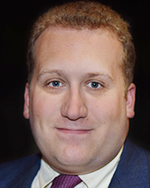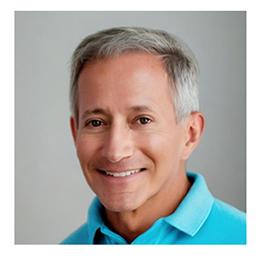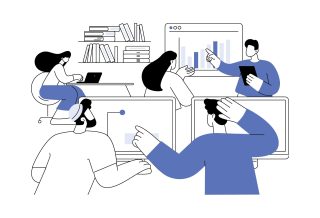IDEAS
Chart a clear course
By Chase Nordengren and Thomas R. Guskey
Categories: Continuous improvement, Data, Evaluation & impact, Fundamentals, Outcomes, ResearchOctober 2020
Vol. 41, No. 5
Read the remaining content with membership access. Join or log in below to continue.
Sed ut perspiciatis unde omnis iste natus error sit voluptatem accusantium doloremque laudantium, totam rem aperiam, eaque ipsa quae ab illo inventore veritatis et quasi architecto beatae vitae dicta sunt explicabo. Nemo enim ipsam voluptatem quia voluptas sit aspernatur aut odit aut fugit, sed quia consequuntur magni dolores eos qui ratione voluptatem sequi nesciunt. Neque porro quisquam est, qui dolorem ipsum quia dolor sit amet, consectetur, adipisci velit, sed quia non numquam eius modi tempora incidunt ut labore et dolore magnam aliquam quaerat voluptatem.
What evaluation looks like
As with many new professional learning partners, our work with Acorn Public Schools (pseudonym) began with a comprehensive needs assessment: NWEA selected 10% of schools participating in professional learning to represent their peers, and each participated in a half-day site visit that included principal and teacher interviews, observation of instructional planning sessions, and observation of instruction.
These data allowed us to create three distinct learning paths for schools in Acorn. While all ultimately will receive the same learning over time, each pathway prioritized the knowledge and skills that would provide teachers at that school the most substantial short-term successes based on each school’s priorities and existing skills.
The participant survey was the next step in this process. With responses from over 1,300 teachers, we learned that, while teachers rated their knowledge of how to use assessment data relatively high, their actual use of these skills was relatively low.
Comparing average scores on these measures with other districts who have taken our survey helped underscore the need for a particular focus in Acorn’s professional learning on how and why to use assessment skills.
This data informed adjustments to our professional learning plan that emphasized opportunities for practical application of assessment skills and focused on the specific contexts in which those skills could be applied in the district.
As next steps, district leaders in Acorn will now work with us to bring the teacher observation instrument and participant portfolio into regular use. While considering these tools, Acorn has recognized the importance of making sure its own measures of effective teaching align with the measures of effectiveness highlighted by our professional learning.
References
Darling-Hammond, L., Hyler, M., & Gardner, M. (2017). Effective teacher professional development. learningpolicyinstitute.org/product/effective-teacher-professional-development-report.
Gersten, R., Taylor, M.J., Keys, T.D., Rolfhus, E., & Newman-Gonchar, R. (2014). Summary of research on the effectiveness of math professional development approaches (REL 2014–010). U.S. Department of Education, Institute of Education Sciences, National Center for Education Evaluation and Regional Assistance, Regional Educational Laboratory.
Guskey, T.R. (2002). Does it make a difference? Evaluating professional development. Educational Leadership, 59(6), 45-51.
Guskey, T.R. (2014). Planning professional learning. Educational Leadership, 71(8), 10-16.
Hirsh, S. (2013). The impact factor: Why we can’t neglect professional learning evaluation. JSD, 34(5), 10-16.
Kirkpatrick, D.L. (1977). Evaluating training programs: Evidence vs. proof. Training and Development Journal, 31(11), 9-12.
Kirkpatrick, D.L. (1978). Evaluating in-house training programs. Training and Development Journal, 32(9), 6-9.
Kirkpatrick, D.L. (1996). Great ideas revisited: Techniques for evaluating training programs. Training & Development, 50(1), 54-59.
Learning Forward. (2011). Standards for Professional Learning. Learning Forward.
Lortie-Forgues, H. & Inglis, M. (2019). Rigorous large-scale educational RCTs are often uninformative: Should we be concerned? Educational Researcher. doi.org/10.3102/0013189×19832850.
Wiliam, D. (2019). Some reflections on the role of evidence in improving education. Educational Research and Evaluation, 25(1-2), 127-139.
Yoon, K.S., Lee, S. W.-Y., Duncan, T., Scarloss, B., & Shapley, K.L. (2007). Reviewing the evidence on how teacher professional development affects student achievement. ies.ed.gov/ncee/edlabs/regions/southwest/pdf/REL_2007033.pdf.

Chase Nordengren is a senior research scientist at NWEA, where he supports the professional learning team with primary and secondary research that drives instructional improvement. His work includes the development and execution of needs assessment and program evaluation services for partners, supporting school improvement processes, and thought leadership on formative assessment and student goal setting practices.

Thomas R. Guskey, PhD, is Professor Emeritus in the College of Education, University of Kentucky. He is a longtime member of Learning Forward, best known for his work on teacher change and on planning, implementing, and evaluating effective professional learning. Contact him by email at guskey@uky.edu, on X at @tguskey, or at www.tguskey.com.
Categories: Continuous improvement, Data, Evaluation & impact, Fundamentals, Outcomes, Research
Recent Issues
BUILDING BRIDGES
December 2024
Students benefit when educators bridge the continuum of professional...
CURRICULUM-BASED PROFESSIONAL LEARNING
October 2024
High-quality curriculum requires skilled educators to put it into...
LEARNING TO PIVOT
August 2024
Sometimes new information and situations call for major change. This issue...
GLOBAL PERSPECTIVES
June 2024
What does professional learning look like around the world? This issue...












